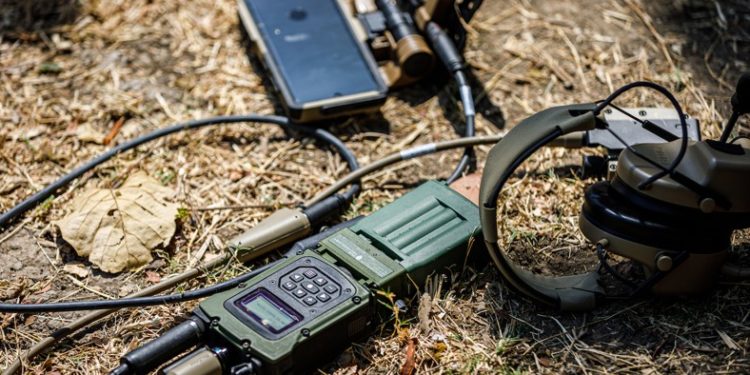The Army will buy hundreds of portable electronic warfare attack and scanner systems, the service said Monday—a type of tool used frequently by both Ukraine and Russia.
The service will spend nearly $100 million to equip, train, and field the system, dubbed the Terrestrial Layer System–Brigade Combat Team Manpack, according to an Army press statement released Monday. The Manpack is designed by Mastodon Design, a subsidiary of defense contractor CACI.
The system is “on track to be the first dismounted electromagnetic attack/electromagnetic support program of record for the Army,” said a spokesperson for the Army’s program executive office for electronic warfare and cyber.
The Manpack is designed to scan the electromagnetic spectrum for indications of enemy activity, like command post emissions, as well as to jam enemy transmissions. It requires two people to operate.
The system will be fielded to units this year, according to the Army press release, and will eventually go to electronic warfare units across every Army brigade combat team.
Russia and Ukraine have both made electronic warfare a key tactic in the ongoing war. Units use signals collection to locate and target enemy units, as well as to identify when their own forces are under drone surveillance. Both sides also regularly launch electromagnetic attacks, including precision weapons and the guidance systems of the thousands of drones that fill Ukrainian airspace.
In addition to larger, truck-borne jammers, Ukraine and Russia have worked quickly to produce new portable electronic warfare systems. Such systems are particularly important given the proliferation of cheap short-range loitering munitions, which make it dangerous for individual soldiers to move on open ground.
Army leaders think the Manpack will also help teach commanders and soldiers to limit their electromagnetic signature.
The Army “can turn that Manpack system back on to ourselves in an opposing force context, to force our formations to fight through a contested electromagnetic spectrum,” Maj. Gen. Paul Stanton, commander of the Army Cyber Center of Excellence, previously told Defense One.
That way, soldiers will be ready for the jamming they’ll face at training centers, said Stanton. “By the time they get to our training centers, they already have repetitions and sets and training to make them that much more proficient.”
